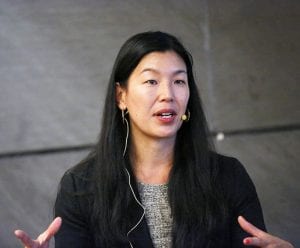
Ai-jen Poo. Photo courtesy of UN Women via flickr, CC BY-NC-ND 2.0.
Miriam Axel-Lute: How did you start organizing with domestic workers?
Ai-Jen Poo: I started organizing with domestic workers in 1998, at a time when, in places like New York City, more and more women were entering the workforce, particularly professionals in urban areas. Nanny care and housekeeping were really big, as child-care options were not actually expanding.
More and more people were doing this work, but the protections were the same as they have been for the last 70 years, which was virtually nonexistent. We often describe domestic work like the Wild West, because the work happens behind closed doors in people’s private homes, and it’s kind of seen as your own personal individual business. There are no standards, no guidelines. Even if you’re an employer who wants to do the right thing, it’s not clear what that is. It leaves workers incredibly vulnerable to abuse and exploitation, and a general lack of respect.
Some women in the Asian community formed a project to do outreach to try to improve conditions for Asian immigrant women in a range of low-wage industries. Domestic workers were the ones who consistently wanted to break their isolation and come together. They really wanted to organize.
Part of the reason why being a part of a community was so appealing was because of the isolation and the vulnerability on the job. Being a part of a collective where you know there’s a group of people who stand with you is something that domestic workers have always wanted.
By 2000 we’d established Domestic Workers United, [which] helped to lead the way for the Domestic Worker Bill of Rights in New York state, the first bill in the country to establish basic protections for domestic workers at the state level. In 2007, we formed the National Alliance. The bill passed in New York in 2010, and since then, four states have passed legislation. Today, we have 45 local affiliates in 26 cities.
Miriam Axel-Lute: How did this work give rise to Caring Across Generations?
Ai-Jen Poo: In about 2010, right as we were coming off of the victory in New York, domestic workers started coming forward, telling us that they were originally hired as nannies and housekeepers, but were suddenly being called upon to take care of the aging relatives of their employers, whether they were early onset Alzheimer’s, or coming home from the hospital after a surgery, or a stroke survivor, or dealing with any number of chronic illnesses. Suddenly housekeepers were being called upon to provide that kind of in-home care [that] they didn’t feel prepared to do, and were asking for training.
And then there was the question of immigration reform. Our members kept saying, if only people knew the kind of support and love and care that we provide for families, particularly older people and children, wouldn’t they support us being able to stay here legally?
There was an opportunity for this workforce to be a big part of the solution for the future in caring for our growing aging population. We started talking to aging and disability groups, women’s organizations, and all kinds of groups. Could we come together to try to find a win-win solution where caregivers, domestic care workers, home care workers, and families all get a better deal?
Miriam Axel-Lute: The jobs of domestic workers, as you
said, are isolated and very personal. How does that change the kind of organizing that you do as compared to more traditional labor organizing?
Ai-Jen Poo: We don’t have a Walmart or mega-corporation squeezing every last bit of life out of the workforce. We have millions of American families who have family care needs. And we have millions of workers who have jobs that are undervalued and families of their own to take care of.
And so, if ever there was a labor arena where there was the potential for a win-win situation, it is in this sector. We’ve never approached employers in a narrowly oppositional way. We’ve always assumed that it’s in everybody’s best interest for this workforce to be able to survive and thrive.
The interests of families are fundamentally interdependent with the interests of workers; there’s a tremendous amount of love, care, and respect that does exist between employers, consumers, and workers in this sector. We want to establish the infrastructure and the standards to support everyone in the relationship.
When it comes to a campaign for human dignity, there’s no such thing as an unlikely ally. Love and connection and community are broadly held values in this country, and really powerful organizing principles. In a lot of industries, because of the concentration of wealth and power in corporate interests, it’s very difficult to organize with that approach. In the care industry, we’re really in this together—it’s only a benefit to a family to have a system where care is actually acknowledged and accounted for. It’s in both consumer-employer families’ and the workers’ interests.
Keli Tianga: How do you get the word out to your constituents, and has it changed over time?
Ai-Jen Poo: It’s always a grassroots effort. There are no shortcuts around good organizing. Real power comes through real relationships that are grounded in local communities between real people. There are millions of domestic workers out there, and most of them don’t know we exist. We’re a relatively young movement, and we are working really hard to build the capacity of our local affiliate organizations, as well as our broader Caring Across Generations movement. We work through social networks, congregations, local immigrant organizations, and ethnic media.
The president’s administrative action on immigration will be a huge help, because a significant number of women who do this work in the shadows and live in fear of deportation and being separated from their families will be able to come forward. That [will] be a big organizing opportunity for us.
Miriam Axel-Lute: I love the way you describe the care industry as “we’re all in it together and it will benefit everyone.” I imagine that there are still some people, though, whose first reaction is, “I need someone to care for my elderly parent, and I can barely afford what I’m paying now; how will it help me to make me pay more?” How do you help people see their shared interests?
Ai-Jen Poo: I think that people recognize how exhausting and difficult the work is, and know that if you add the strain of not being able to support your family, it creates incredible amounts of stress and burnout, and ultimately high turnover. And the last thing you want when you’ve established a good caregiving relationship in your home is to have to readjust and retrain and get acclimated to a new person every two months.
We’re not just saying that you should pay more, we’re saying we need a whole new infrastructure for care. I wrote a book called The Age of Dignity: Preparing for the Elder Boom in a Changing America. And the book talks about [how] we were able to bring running water, electricity, and the Internet to every home in America because we laid an infrastructure and invested in it through public resources—we made it our national priority.
This is similar [in] that [it] affects every single American household, and we simply have not put the infrastructure in place. We’re saying families should get subsidies and other supports to be able to afford to pay a living wage to caregivers. The idea is achievable if we make it a national priority.
Miriam Axel-Lute: Clearly, Caring Across Generations has forged a lot of different collaborations. In the community development field, likewise, a lot of different groups are working on very similar things, often side-by-side in the same neighborhoods, and have no idea that the other exists, or sometimes even resist the idea that they should be allies. Have you run into that sort of thing, and how do you overcome that as you build these collaborations?
Ai-Jen Poo: This immigration moment is a really good example. People think about undocumented immigrants and they think about people who violated some law. It’s a different context for the conversation when you ask a senior, “Do you support immigration reform?” or ask, “Do you support a strong home care workforce for the future to allow older people to age in place with dignity?” and, in that context, “Do you support the immigrant workforce?” We did polling in five states, including Missouri and Ohio, and when we asked the question using the entry point of home care, the support for immigration reform went up 8 to 10 points.
If we’re able to work from those places where our short-term interests and longer-term values come together, it’s an entry point. When you get underneath it all, there’s a lot of commonality around values.
Miriam Axel-Lute: Do you see the various movements for social justice, racial justice, and economic justice converging?
Ai-Jen Poo: Yes.
Keli Tianga: What do you think is the catalyst?
Ai-Jen Poo: I think it’s two things. One, the leadership of women is key. The issues of work, family, caregiving, race, and equity are inseparable in the experiences of women. Women have always been caregivers and workers and leading change; the increased leadership of women in our movements has made a difference in our ability to collaborate, both to see the opportunities across issue areas and to work together in practical ways.
I also think that [the] younger generation is more attuned to the nuances and complexities of identity in the 21st century. They’re not as entrenched in institutional cultures that were established 40 years ago.
Miriam Axel-Lute: There’s the large home health care aide co-op in the Bronx and some smaller co-ops started by a community development group in Brooklyn that include a housekeeping co-op, and I believe a childcare co-op. What role do you see for worker-owned co-ops in this sector?
Ai-Jen Poo: In general, workers should be empowered, and I think worker cooperatives are one really inspiring expression of a model where workers have ownership over their work. It’s a really great thing, and we have many worker-owned cooperatives in our alliance.
The worker power is the core piece, and the kind of power that worker cooperatives represent and express is a different kind of power than organizing. Cooperatives are a very limited group of people who are owners of an institution that’s usually fairly small in scale, with a few exceptions. If we want to build a voice for workers in the industry, we need to be organizing thousands and thousands of people, and we haven’t quite figured out how to do a cooperative model at scale in most sectors.
It’s not a replacement for the kind of power that you can build in a sector through organizing, but it is a really important complement. It represents [a kind of] power I call “modeling power,” the ability to model an alternative to the status quo, to be able to inspire and demonstrate what’s possible in the future as an alternative. I don’t think it replaces political or organizing power, or even narrative power.
Miriam Axel-Lute: What would it look like if we handled the coming age wave well?
Ai-Jen Poo: There would be three principles. We would have a whole new infrastructure, which would create really good quality jobs in the care sector, meaning living wage jobs with paid days off and benefits and career pathways.
The second element is good quality services for families—affordable, high-quality care. Training helps produce quality care, [and] personalized matching creates quality care relationships.
The third pillar would be about maximum choice. There are some people for whom day care centers work, or assisted living facilities work, and there are some people who want in-home care no matter what. We want an infrastructure where there’s real choice for families according to what their needs are.
That means we need to make a major investment in this sector that can produce all of these things—training, registries, and so on. I think that we have elements of all of that at a small scale; we just need to figure out what it would look like to scale it up.
Miriam Axel-Lute: Are we going to pay for all of this with a reduction in the cost of nursing home and hospital care?
Ai-Jen Poo: Yes. If we invest in the home care workforce, we create a lot of new efficiencies in the health care delivery system. We’ll save a lot of money in unnecessary emergency room visits, or managing chronic illnesses.
Nursing homes are really, really expensive, up to over $80,000 a year per person. Home-based care is much more affordable. I think it’ll be a combination of individual households contributing what they can, the government subsidizing it to some extent, [and] employers chipping in. We need to come up with a framework where everyone contributes and it’s clearly valued and invested in as the kind of national priority that it really is.
The cost of not investing in this infrastructure is actually untenable. The idea that we would put 27 million [people] into nursing homes—the current status quo model—it’s just not tenable.
Miriam Axel-Lute: Many Shelterforce readers work at community development corporations, build affordable housing, work with low-income homeowners, or manage rental properties. A lot of them are starting to talk about how to coordinate housing and health services, or support aging-in-place. What would you want to tell people who tend to envision their work in place-based terms rather than population-based?
Ai-Jen Poo: We would love to work with people to conceptualize innovative new housing structures and community models, like the Village Movement, where we can support aging-in-place and home care infrastructure in local communities. One example of this [would be] actually having affordable housing owned by care workers and their families, where there [are] rooms within the housing that elders can rent. Like the care homes model in Hawaii, where a lot of private homeowners open up rooms in their home to take care of the elderly in their neighborhoods, and are paid.
You could promote homeownership among the low-income home care workforce, and promote a home-like setting for elders in the community. That’s the kind of thing we can be thinking about together. What are the win-win solutions, where do their interests come together, how can we innovate at the intersection of our interests? That’s where the future lies.
Keli Tianga: Congratulations on your MacArthur Fellowship. How do you see that award
affecting your work?
Ai-Jen Poo: If we’re to find holistic, inclusive solutions to some of our nation’s biggest problems, we really do need to elevate the leadership of women, and particularly low-income women and women of color who’ve been the most invisible in this economy and in this democracy.
The fellowship allows me to go out and fund-raise to establish an endowed fellowship within the Alliance for domestic workers and home care workers themselves, to develop their leadership, whether it’s to run for office, or to work with me on public policy, or to do community organizing. It’s really about investing in low-income women and their leadership for the future.
There is an enormous demographic change happening [in this country] in terms of race. Oftentimes, as a result of segregation in our neighborhoods, we really only see people of our same race or ethnicity. There are very few places where there’s a lot of diversity.
You’re getting an older population that’s a lot whiter, and a younger population that’s a lot more of color. There’s a generational and racial polarization, and that has enormous dangers in terms of our politics. We run the risk of becoming an incredibly [politically] polarized nation, where we’ll see even more gridlock than we see now if we don’t find agendas for the future of this country and public policy that really bring our interests together.
What Caring Across Generations is trying to do, and what I hope more and more organizers will think about, is find and build organizing platforms that build upon our common interests and connections across race, class, and generation in this country. We have to be able to articulate a vision for the future that really does feel inclusive of everyone.

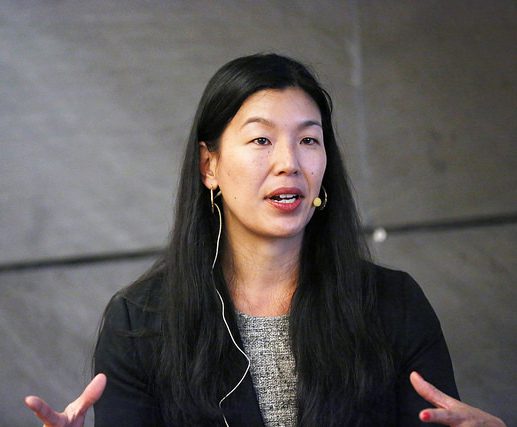

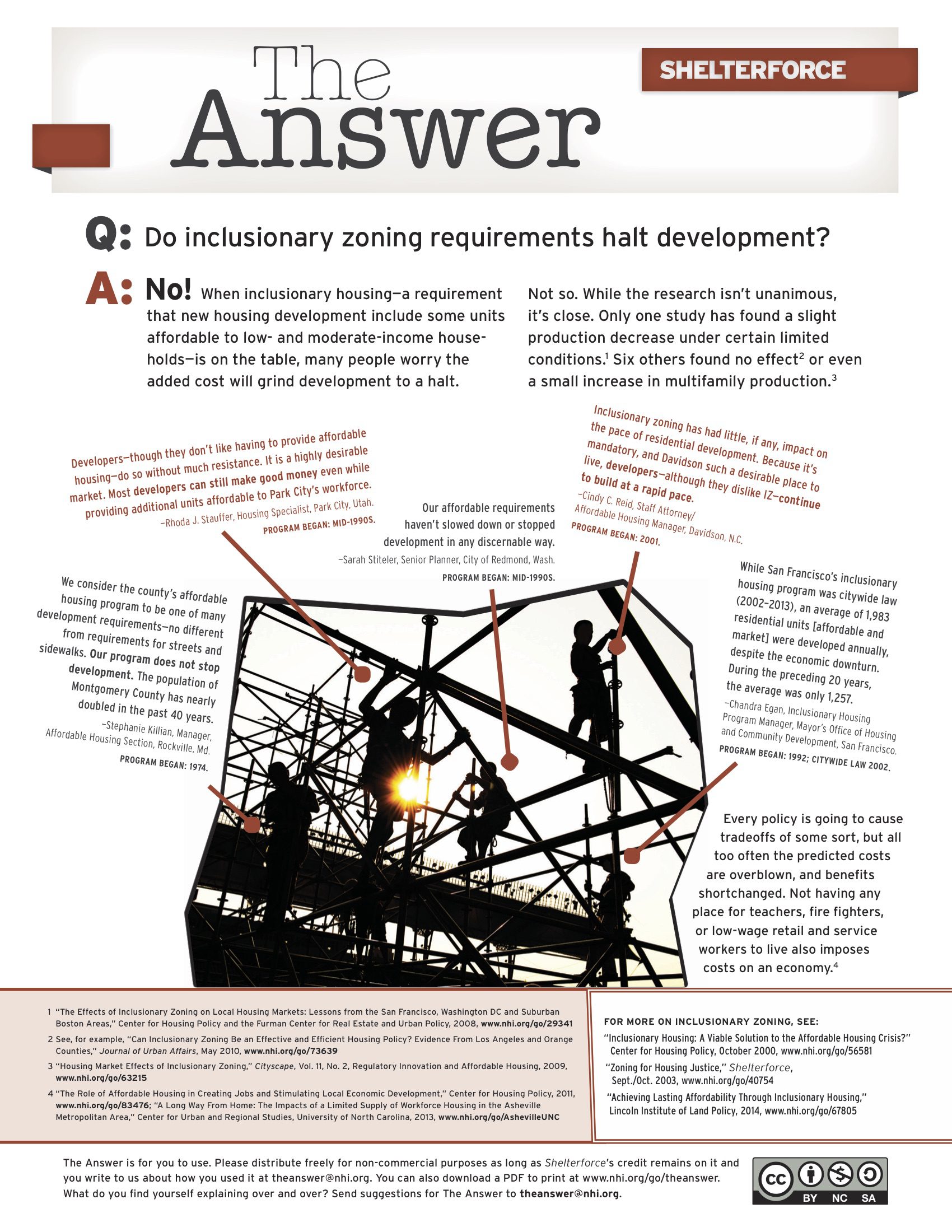
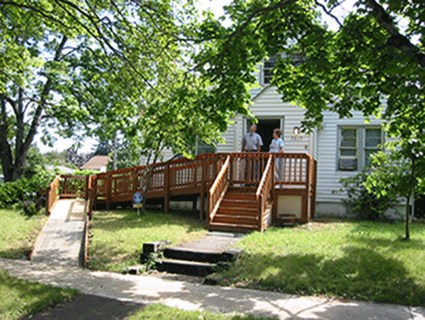
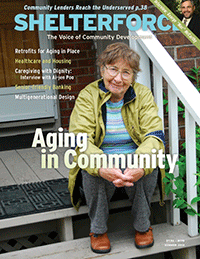
Comments